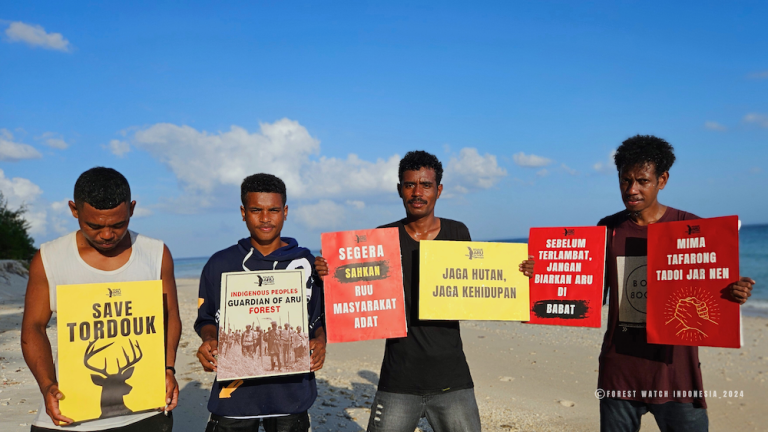Jakarta – Ambon is one of the places at the forefront of the climate crisis’s erosion of coastal communities’ livelihoods. For Icheiko Ramadhanty, witnessing fishing families lose their livelihoods and coastal women suffer due to ocean pollution is not merely data in a climate report—it is a reality she has encountered firsthand. It was from this experience that her determination grew, bringing the voices of Indonesia’s coastal villages to the international stage of COP30 in Belém, Brazil.
“In Ambon, I saw coastal women losing their income because fish catches continued to decline. The sea was becoming increasingly polluted, and the weather was becoming more unpredictable. They were gradually losing their livelihoods,” Icheiko told the press on Tuesday, November 25, recalling her experience working with the community.
In November 2025, she was selected as one of 16 young leaders from the Global South to attend the world’s largest climate forum. Her departure was driven by her work at GAWIREA (Girls and Women in Renewable Energy Academy), an institution focused on renewable energy education and climate resilience. Through her role as Communications and Community Development Manager, she was directly involved in assisting communities most affected by climate change.
At COP30, Icheiko delivered a strong message that wealthy countries must fulfil their historical responsibilities. “I want to speak out more to pressure developed countries to provide adequate climate funding, free of debt and conditions, and to ensure that the Loss and Damage Fund is fully funded and accessible,” she said.
Icheiko assessed that the COP30 meeting took place amid global tensions, with the commitment of some developed countries to climate action becoming increasingly shaky. However, according to her, the rapid growth of renewable energy offers new hope—as long as climate justice is not neglected.
Through GAWIREA, Icheiko and her team run the Net Zero Heroes programme, a clean energy curriculum that has reached more than 1,000 young people in Indonesia and the Asia Pacific, with around 80 per cent of participants being women. “We want young people to understand what the climate crisis is and know the practical steps they can take,” she said.
This programme has given rise to community initiatives ranging from waste management and mangrove conservation to the installation of solar panels in remote areas. Her experience in the field has made Icheiko realise the vast inequality in energy access in Indonesia. “Many people on small islands still rely on generators, while big cities are talking about electric cars. This gap must be addressed,” she said.
Icheiko’s leadership led to her selection for the international programme Pathway to the Democratisation of the South, which involved participants from Asia, Africa and Latin America. Six months of intensive learning resulted in the Global Southern Youth Declaration, which was later read out at COP30. It called for fair climate financing, corporate accountability, protection for environmental defenders, and the involvement of young people in every stage of policy-making.
Juan David Amaya, Executive Director of Life of Pachamama, emphasised that the voices of the Global South can no longer be relegated to a supporting role in global climate negotiations.
“For years, the South has only been seen as a victim. Now, the younger generation from three continents is showing that we are a political force to be reckoned with,” he said.
For Icheiko, the idea of Democratisation of the South is an effort to restore control to those most affected. “The voices of Southern countries should not only be heard; we must be part of the decision-making process,” she asserted.
Icheiko believes that the climate struggle does not stop at international forums. She wants collaboration among young people, local communities, the private sector, and the government to grow stronger, so that the climate movement can develop into a real ecosystem that supports clean energy and community resilience at the grassroots level.
The hope is fundamental yet straightforward: that every country—large and small—has an equal say in determining the future of the earth together. (Hartatik)
Banner photo: The Indigenous peoples of the Aru Islands in Indonesia demand recognition for their critical role in protecting biodiversity. (Contentro PR/handout)















